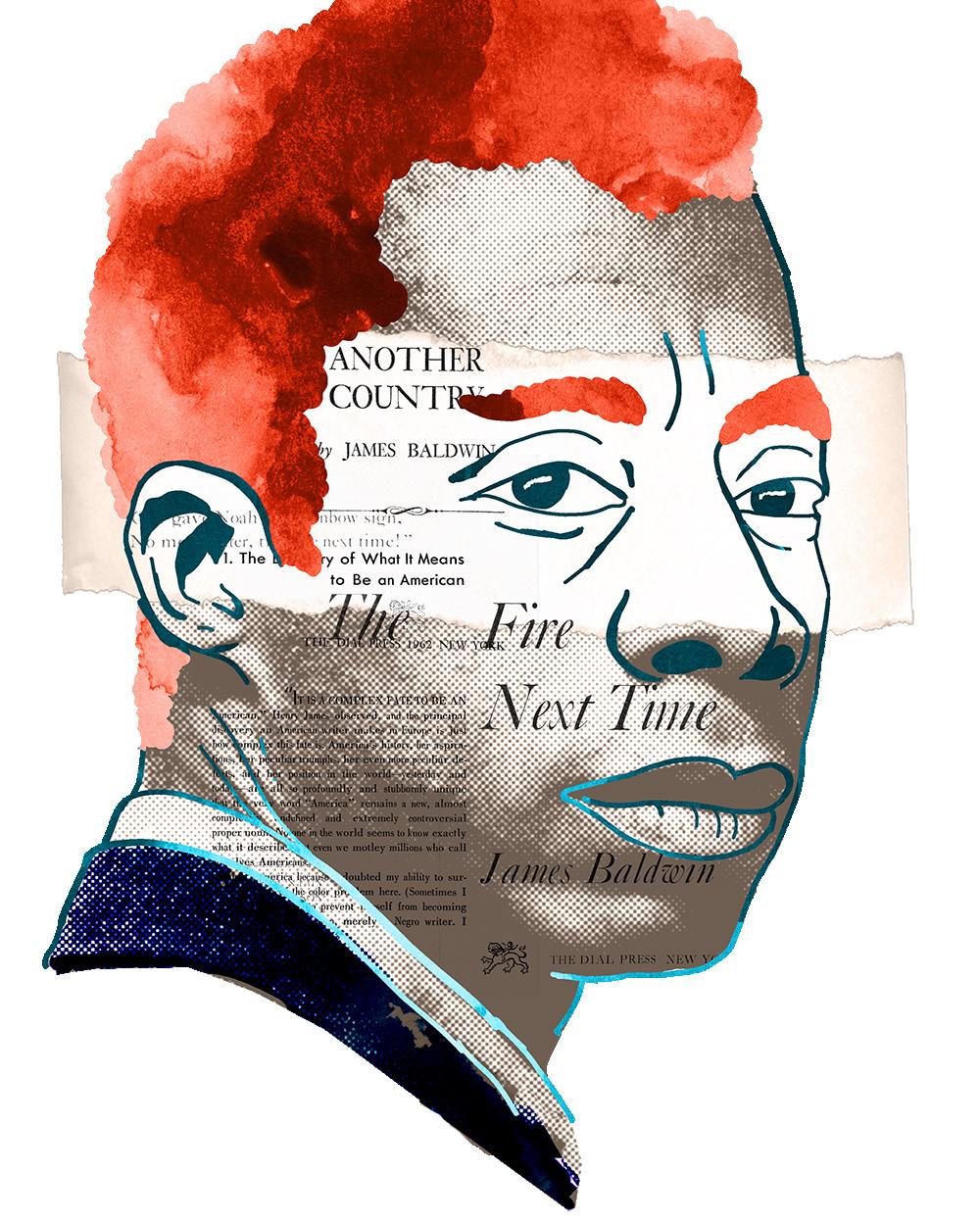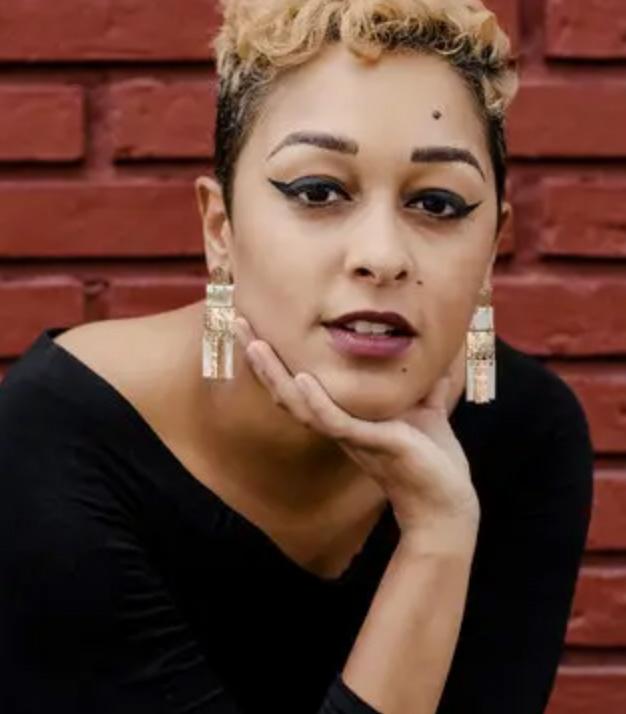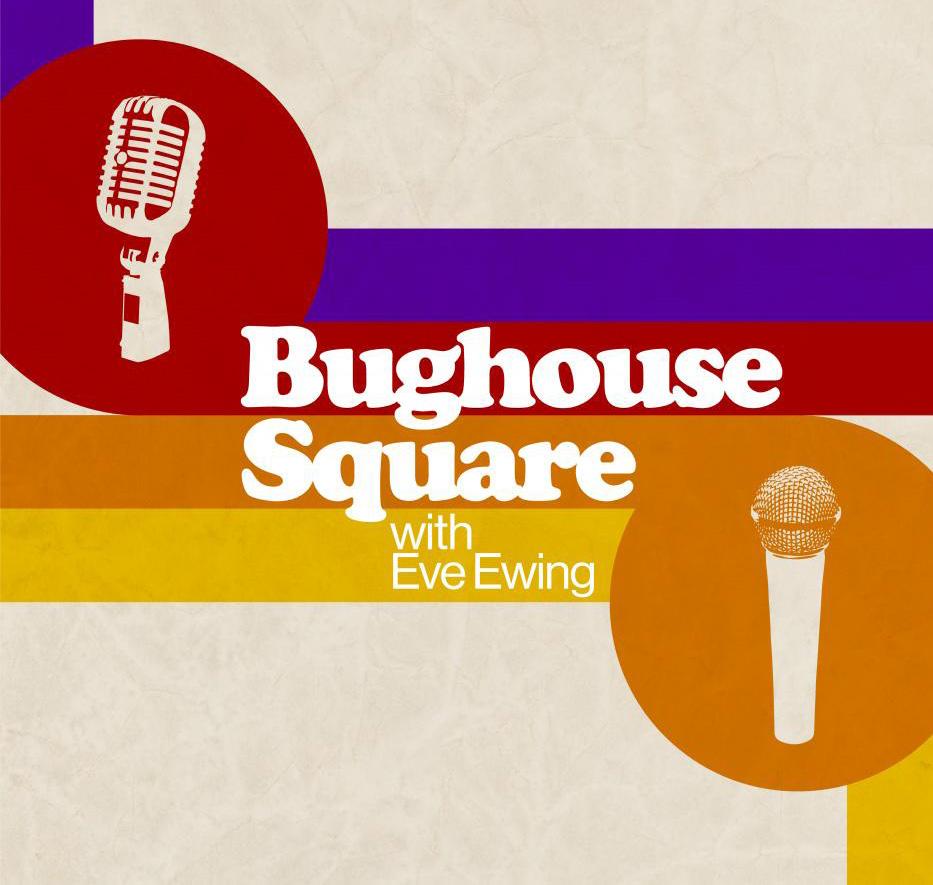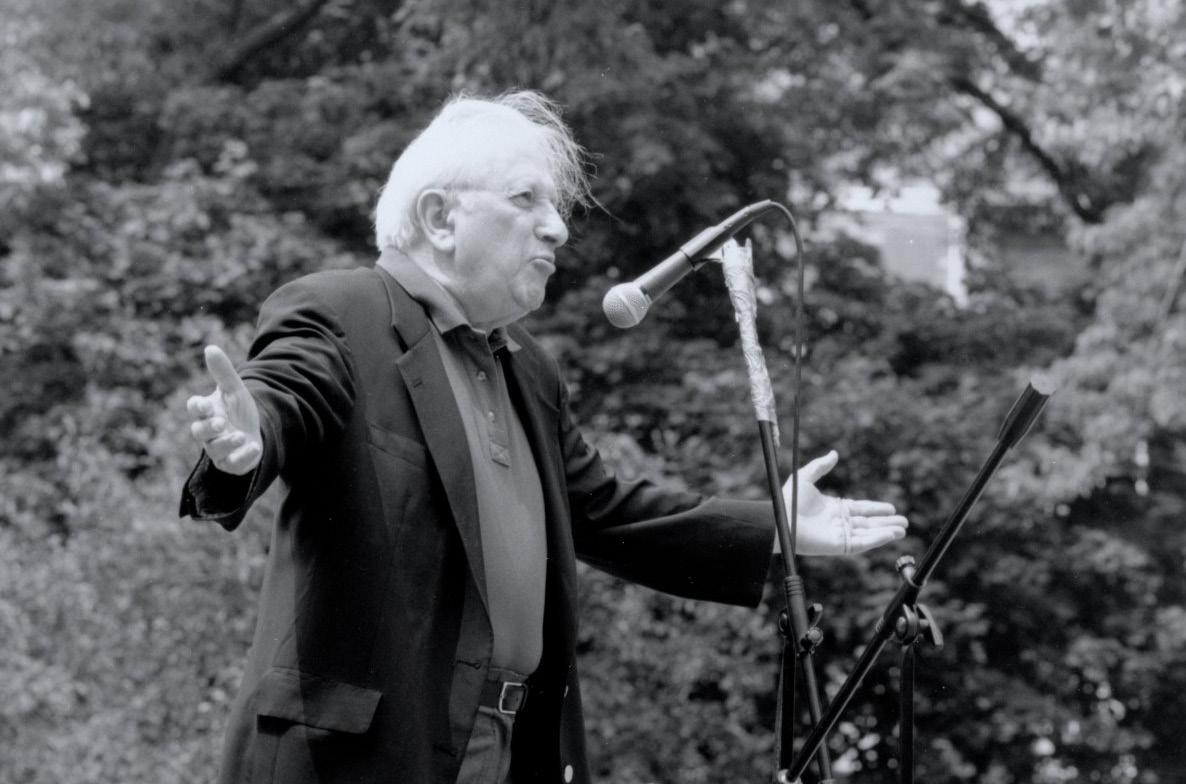
3 minute read
PAST TO PRESENT: STUDS TERKEL’S LESSONS FOR TODAY’S AMERICA
PAST TO PRESENT: STUDS TERKEL’S PAST TO PRESENT: STUDS TERKEL’S LESSONS FOR TODAY’S AMERICALESSONS FOR TODAY’S AMERICA
WHO IS STUDS TERKEL?
Advertisement
Over his 45-year career and 96-year life, Terkel amassed many awards, wrote and compiled many books, and spoke to countless politicians and celebrities, but he is most remembered for his interest in everyday people and their oral histories, which he gathered by the hundreds, with respect and great care.
In many ways, his ability to see and hear people as they see themselves and let them tell their stories is more needed than ever.
PUBLIC NARRATIVE + TERKEL:
Famed oral historian, author and broadcaster Louis B. “Studs” Terkel was a mentor of the organization from its founding in 1989, and helped to guide it until his death in 2008. Begun in 1994, our annual Studs Terkel Community Media Awards honor journalists whose work follows the values of Studs’ journalism. In 2007, Studs said that the award is meant for journalists who go the extra mile in reporting news “from the people who made Chicago, news that’s bottom up rather than up, down.” For over 25 years, the Terkel Awards has recognized more than 70 journalists who have taken risks in covering social issues by offering new or unusual perspectives on housing, inequality, violence, health, education and beyond.
FROM THE STUDS TERKEL RADIO ARCHIVE: www.studsterkel.wfmt.com

“In 1962, [Studs Terkel] interviewed James Baldwin about his just-published novel Another Country. Baldwin observed... “It’s really a book about the nature of the Americans’ loneliness, and how dangerous that is: how hard it is here for people to establish any real communion with each other, and the chances they have to take in order to do it.”
Terkel... seemed to latch onto Baldwin’s concept of “the Americans’ loneliness.” He asked Baldwin if he really thought things were better elsewhere. Yes, said Baldwin, who said he observed among the French “a certain largeness and a certain freedom” and among West Africans “joy among the people,” qualities he saw as absent from American culture.
Today, Baldwin is seen as an icon who is both Black & LGBTQ. But, at the time, he struggled with selfidentifying as gay and spent many years living in France, in part, to escape America’s racism.
REVISITING TERKEL’S BALDWIN INTERVIEW WITH DR. EVE EWING

Photo: Whitten Sabbatini for The New York Times
It’s not just Public Narrative who likes Terkel! Famed writer, sociologist, and activist Dr. Eve Ewing chose Terkel’s interview with James Baldwin for the first episode of her Bughouse Square podcast. In it she leads a conversation with columnist and published author, Darnell Moore.
Darnell Moore names several notable Black queer writers whose work is also meaningful today: Richard Bruce Nugent, June Jordan, Audre Lorde, Cheryl Clark, M Jackie Alexander, and Barbara Smith.
The Bughouse Square podcast features five notable Terkel interviews, with current feedback about their relevance and lessons, plus respondents’ own additions that build onto Terkel’s already far-reaching perspectives. Tune in and let the past speak to our present!
FOOD FOR THOUGHT: • How have Black writers helped shape your thinking? • What can we all learn from listening to voices from 50+ years ago ? • Do you agree with Baldwins’ assessment of American loneliness? • What does it mean to be both Black & LGBTQ in today’s America?
Dr. Eve L. Ewing is a sociologist of education and a writer from Chicago. She is the author, most recently, of the poetry collection 1919 and the nonfiction work Ghosts in the Schoolyard: Racism and School Closings on Chicago’s South Side. She also currently writes the Champions series for Marvel Comics and previously wrote the acclaimed Ironheart series, and many other projects.


WHERE’S BUGHOUSE SQUARE?
Studs Terkel speaking at a revival of the Bughouse Square talks.

Bughouse Square is a nickname of Washington Square Park in the River North neighborhood, which is also Chicago’s oldest park, where between 1910s and 1930s speakers held open-air speeches on labor reform, womens’ rights, anti-war, and other subjects. No topic was taboo. Many speakers became legendary activists, anarchists, feminists, socialists, and writers. In recent years, the tradition was revived via an annual series of public speeches held in the park each July. Learn more: www.newberry.org/ bughouse-square-debates








